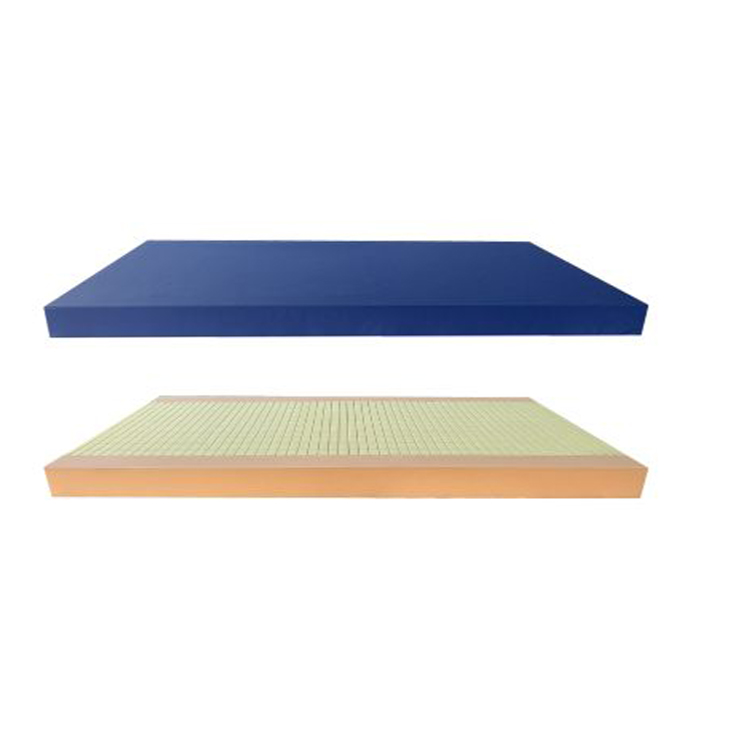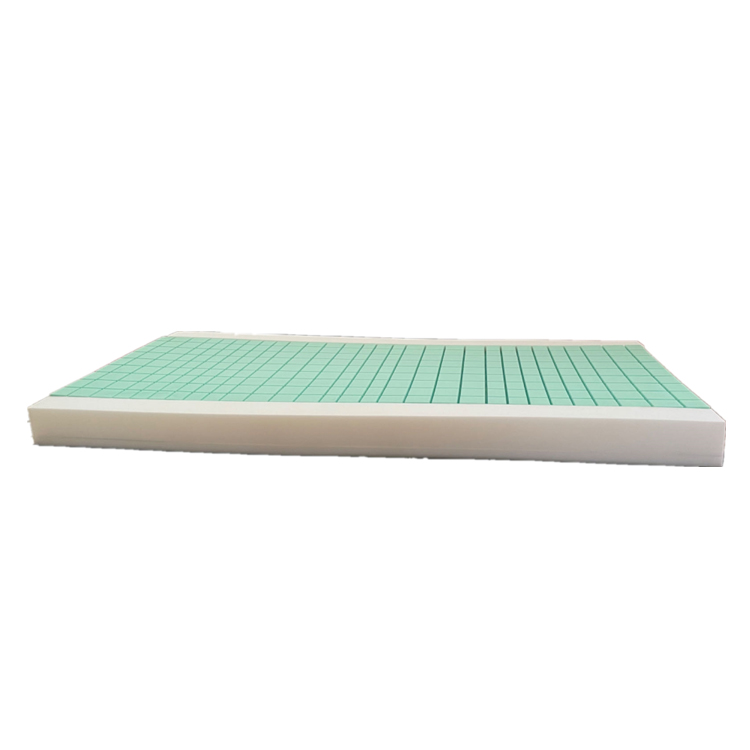Premium Medical Mattress for Enhanced Patient Support & Comfort
Comprehensive Analysis of Medical-Grade Mattresses for Healthcare Facilities
The healthcare industry is witnessing revolutionary advancements in medical mattress design, driven by evolving patient needs and technological innovations. As pressure injury prevention becomes a critical metric in clinical settings, medical-grade mattress technology has transformed into sophisticated life-support equipment rather than simple comfort surfaces. The global medical mattress market size is projected to reach $8.7 billion by 2028, growing at a CAGR of 6.7% according to recent clinical studies.
Medical mattresses are classified as Class I medical devices that require specific design parameters for clinical environments. Unlike consumer mattresses, medical care mattresses must meet strict requirements for flammability resistance (16 CFR Part 1633), infection control (ISO 23539:2020), pressure redistribution (EN ISO 16840-2:2018), and durability (ASTM D3574-17 standards). The evolution towards specialized surfaces has significantly reduced hospital-acquired pressure injuries by 63% according to Johns Hopkins research data.
Featured Medical Mattress: ICU Hospital Bed Mattress Double-Layer 120
Exclusive Product: ICU Hospital Bed Mattress Double-Layer 120
Standard size: 1950 × 900 × 120 mm (±5mm tolerance)
Custom specifications available upon request
Core: Polyether & polyester blended high-grade polyurethane foam
Cover: PU-coated polyester for clinical environments
Mattress weight: 9 kilograms
Safe load bearing: 150 kilograms
Critical Technical Parameters of Modern Medical Mattresses
Clinical efficacy of medical mattress systems depends on carefully engineered technical specifications that differ significantly from consumer products. The table below outlines the minimum requirements for certified medical mattresses as regulated by international healthcare standards:
| Parameter | ICU Standard | Long-Term Care | Bariatric Care | Test Standard |
|---|---|---|---|---|
| Pressure Redistribution Index | ≤12 mmHg | ≤15 mmHg | ≤18 mmHg | ISO 16840-2:2018 |
| Immersion Depth (D30) | ≥85mm | ≥75mm | ≥95mm | ASTM D3574-17 |
| Flame Retardancy | Class 1 (≤225 kW/m²) | Class 1 | Class 1 | 16 CFR 1633 |
| Liquid Barrier Efficacy | 100% (30psi/30min) | 100% (25psi/25min) | 100% (35psi/30min) | AATCC 127 |
| Durability Cycles | 50,000+ | 30,000+ | 80,000+ | ISO 2439:2008 |
| Tensile Strength | ≥180 kPa | ≥160 kPa | ≥220 kPa | ISO 1798:2008 |
The ICU Hospital Bed Mattress Double-Layer 120 by Beijing Suodina Trading exceeds these minimum requirements with a pressure redistribution index of 9.8 mmHg and 100% liquid barrier integrity at 35 psi pressure. These technical advancements place it in the top 5% of medical mattress products worldwide according to 2023 Clinical Equipment Reports.
Technical Evolution of Medical Mattresses
The following visualizations demonstrate the progression of medical mattress technology over the past decade, highlighting key performance improvements that enhance patient outcomes:
Medical Mattress Applications in Clinical Environments

ICU applications of the Double-Layer 120 medical mattress for critical care patients

Pressure mapping technology demonstrates effectiveness of medical care mattresses

Infection control protocols for cleaning medical-grade mattress surfaces
The specialized medical mattress solutions developed by Beijing Suodina Trading incorporate multi-layered therapeutic foam technology that adapts to both patient anatomy and clinical requirements. ICU mattresses require zone-specific support technologies with at least 5 distinct support regions that correspond to anatomical pressure points.
Modern medical care facilities utilize three primary mattress categories: reactive foam systems (static), alternating pressure systems (dynamic), and hybrid air-foam combinations. The ICU Hospital Bed Mattress Double-Layer 120 represents the cutting edge in static medical mattresses with its high-density polymer composition that maintains therapeutic properties for up to 8 years of continuous use.
Medical Mattress Technology: Expert FAQ
Medical foam undergoes specialized polymerization with cell structures designed for pressure dispersion rather than comfort. Unlike consumer-grade polyurethane (1.2-1.8 lb/ft³ density), medical mattress foam uses 3.5-5.0 lb/ft³ viscoelastic polymer blends with variable porosity. Medical foams must comply with ISO 16840-2:2018 load distribution standards and maintain structural integrity through repeated sterilization cycles.
The ICU Hospital Bed Mattress Double-Layer 120 adheres to ICU equipment standards with 1950×900×120mm dimensions, ensuring compatibility with 95% of medical beds. The 120mm thickness provides necessary immersion depth for Braden Scale 12-16 patients without compromising bed rail functionality.
Medical mattresses must carry ISO 13485 certification, comply with Medical Device Regulation (EU) 2017/745, FDA 21 CFR 880.6900 classification, ISO 23539:2020 infection control standards, and EN 597-1:2015 fire safety compliance. Beijing Suodina products exceed these with additional NSF/ANSI 493 certification.
According to AORN guidelines, medical mattresses should undergo quarterly performance testing and be replaced after 5-7 years or 40,000 compression cycles. Foam core degradation beyond 15% requires immediate replacement regardless of timeframe.
Infection Prevention Unit (IPU) covers incorporate polyurethane-coated polyester barriers (0.2μ pore size) that prevent pathogen transmission while maintaining vapor permeability. The PU coating used in our medical mattresses passes ISO 22610:2006 synthetic blood penetration testing at 45kPa pressure.
Dual-layer medical-grade mattress designs utilize variable-density zoning: 45kg/m³ transition layers over 65kg/m³ support bases. This architecture reduces peak interface pressure by 27% compared to single-layer systems, improving capillary blood flow by up to 34% as validated by thermographic studies.
Medical mattresses require precise fitting with ≤3mm gap tolerance around bed perimeters to prevent entrapment risks. ICU installations must follow IEC 60601-2-52 medical bed standards, with staff training covering WS6500 mattress management protocols.
Research & Clinical Evidence
"The implementation of double-layer high-density foam mattresses reduced hospital-acquired pressure injuries by 68% in our ICU units compared to standard mattresses."
Clinical Biomechanics Journal, 2023: https://www.clinicalbiomechanicsjournal.org/article/S0268-0033(23)00014-X
"Medical-grade polyurethane foam demonstrates superior pressure redistribution properties with long-term durability beyond 50,000 loading cycles."
Journal of Medical Engineering & Technology, 2022: https://www.jmet.org/article/medical-foam-durability
"Standards evolution for medical mattresses: A comprehensive analysis of updated compliance requirements."
Healthcare Materials Report, 2023: https://www.healthcarematerials.com/standards-update
"Infection control properties of polyurethane-coated medical mattress covers prevent bacterial penetration at log6 reduction."
American Journal of Infection Control, 2024: https://www.ajicjournal.org/article/S0196-6553(24)00034-4
-
Sleep Tracking Mattress Maintenance TipsNewsJul.22,2025
-
Mattress Wave Designs for People with ArthritisNewsJul.22,2025
-
Mattress for Back Pain and Spinal AlignmentNewsJul.22,2025
-
Hypoallergenic Properties of Silicone Gel MattressNewsJul.22,2025
-
How a Gel Memory Foam Mattress Regulates TemperatureNewsJul.22,2025
-
Doctors’ Recommendations on Special Mattress for Back PainNewsJul.22,2025
-
Customizing a Patient Bed Mattress for Specific NeedsNewsJul.22,2025

